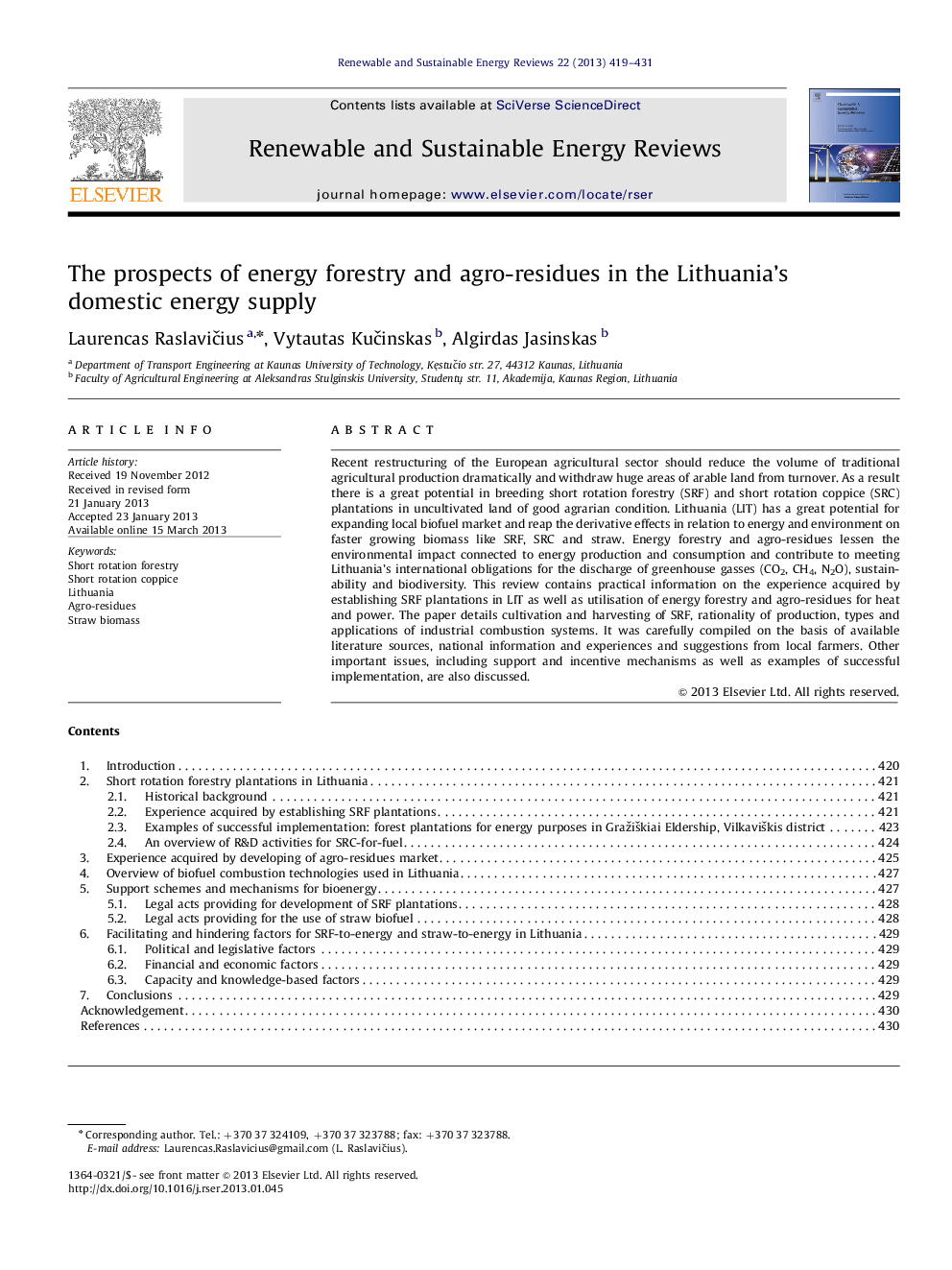| Article ID | Journal | Published Year | Pages | File Type |
|---|---|---|---|---|
| 8122177 | Renewable and Sustainable Energy Reviews | 2013 | 13 Pages |
Abstract
Recent restructuring of the European agricultural sector should reduce the volume of traditional agricultural production dramatically and withdraw huge areas of arable land from turnover. As a result there is a great potential in breeding short rotation forestry (SRF) and short rotation coppice (SRC) plantations in uncultivated land of good agrarian condition. Lithuania (LIT) has a great potential for expanding local biofuel market and reap the derivative effects in relation to energy and environment on faster growing biomass like SRF, SRC and straw. Energy forestry and agro-residues lessen the environmental impact connected to energy production and consumption and contribute to meeting Lithuania's international obligations for the discharge of greenhouse gasses (CO2, CH4, N2O), sustainability and biodiversity. This review contains practical information on the experience acquired by establishing SRF plantations in LIT as well as utilisation of energy forestry and agro-residues for heat and power. The paper details cultivation and harvesting of SRF, rationality of production, types and applications of industrial combustion systems. It was carefully compiled on the basis of available literature sources, national information and experiences and suggestions from local farmers. Other important issues, including support and incentive mechanisms as well as examples of successful implementation, are also discussed.
Related Topics
Physical Sciences and Engineering
Energy
Renewable Energy, Sustainability and the Environment
Authors
Laurencas RaslaviÄius, Vytautas KuÄinskas, Algirdas Jasinskas,
